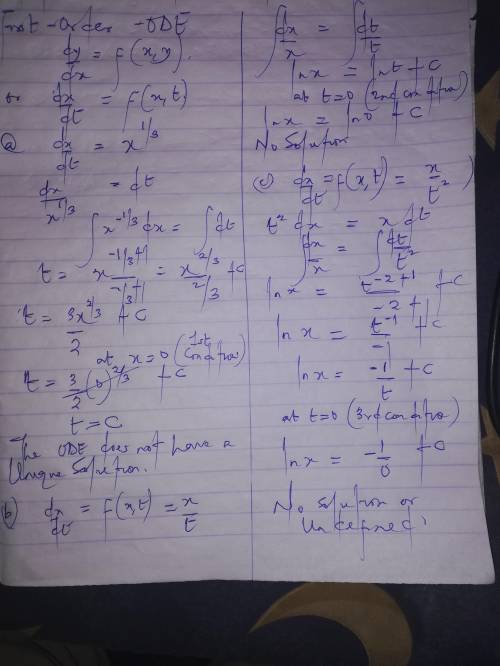
Mathematics, 25.01.2020 05:31, cody4976
First-order differential equations need not have unique solutions satisfying a given initial condition.
a)prove that there are infinitely many different solutions of the differential equations x- = x^1/3 satisfying x(0) = 0.
b)discuss the corresponding situation that occurs for x- = x/t, x(0) = x_0.
c)discuss the situation that occurs for x- = x/t^2, x(0) = 0.

Answers: 2
Other questions on the subject: Mathematics


Mathematics, 21.06.2019 17:00, tifftiff22
The volume of a cube is 8 in to the 3rd power. how long is each side?
Answers: 1

Mathematics, 21.06.2019 17:20, organicmemez
Researchers were interested in whether relaxation training decreases the number of headaches a person experiences. they randomly assigned 20 participants to a control group or a relaxation training group and noted the change in number of headaches each group reported from the week before training to the week after training. which statistical analysis should be performed to answer the researchers' question?
Answers: 2
Do you know the correct answer?
First-order differential equations need not have unique solutions satisfying a given initial conditi...
Questions in other subjects:



Computers and Technology, 17.02.2021 14:10

Mathematics, 17.02.2021 14:10

Biology, 17.02.2021 14:10

Mathematics, 17.02.2021 14:10

Biology, 17.02.2021 14:10

Mathematics, 17.02.2021 14:10








